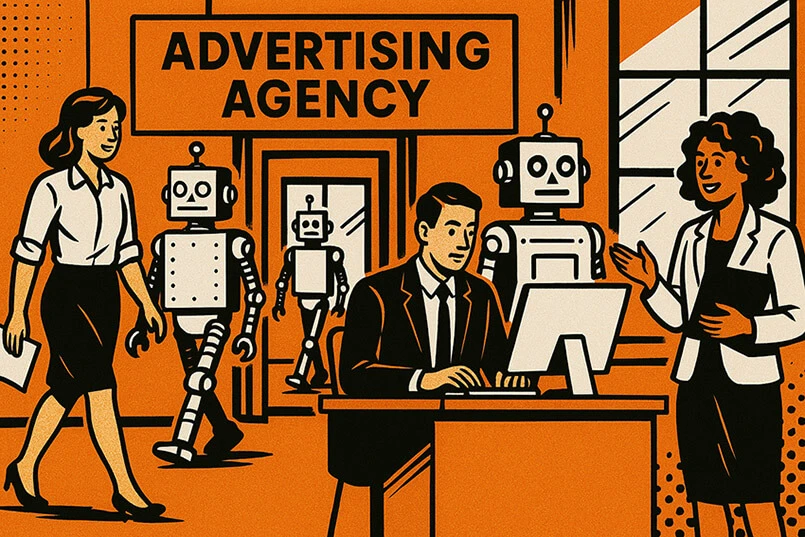It was an interesting conversation recently, with the head of a digital agency that had found themselves in a dispute with their client over the cost of work they had performed. It appears that having briefed the agency, the client then had the agency develop concepts, approved the costs and even paid the invoices. So what had gone wrong?
This is an increasingly common occurrence in a cost sensitive industry with a possible over-supply of vendors, both specialists and generalists.
The client was showing off their shiny new website to their PR agency, feeling very proud and wanting the PR agency to promote the site to the media, when the Head of the PR agency asked how much did the site cost? The client told them and was immediately deflated to hear that they would have charged half as much as they paid.
Benchmarking by competitors
The whole purpose of a tender process is to have competitive suppliers compete on a level playing field to determine the best supplier for the job representing the best value. Having a tender process after the work is done is flawed, primarily because it is not a level playing field.
The easiest thing in the world is to quote on a job that is already done as you are quoting on simply replicating what already exists. We see this often as a new business strategy for everyone from printers to market researchers.
They approach a client on the basis of benchmarking their current costs with a view to identifying opportunities for the client to achieve savings. Often they will select a recent project or a ‘basket of goods’ to ‘competitively quote’. Unsurprisingly, the answer is usually the same. The agency or supplier providing the benchmark will be cheaper.
The importance of contracts
Back to our digital agency head and their disgruntled client. Based on the PR agency’s benchmarking advice on the work done the client confronted the digital agency accusing them of overcharging for the work done.
At some point in the conversation I asked if there was a contract or written agreement between the agency and the client. Typically there was no agreement in place, which while not unusual, was poor practice on behalf of the client. It meant that the agency retained any and all copyright created during the process and had no reason to assign it to the client either now or in the future.
Beyond the intellectual property issue, it also meant there were no terms or conditions on the relationship and no termination clauses or dispute resolution measures agreed. But there was a paper trail including the brief to the agency, a succession of emails, quotes and approvals and evidence of the work being delivered in the form of a website. So did the client have any right to complain? Or even to ask for the refund they were demanding?
The importance to get it right up front
Not only is it important to have the appropriate agreement or contract, you also need to get the price right before you start work. This means scoping the requirements and obtaining a number of competitive quotes from pre-qualified suppliers capable of delivering the outputs. This could be from:
- Your existing roster of agencies and suppliers.
- A panel of suitable suppliers recommended through our Perfect Match service.
- A full and rigorous tender process using our Agency Register and Search and Selection Process.
In each of these approaches you have hopefully assessed the supplier’s capabilities and negotiated their remuneration and rates to a fair and reasonable value. Therefore when they are asked to quote or estimate for the work you can be somewhat confident that the cost is fair and competitive. If you have any doubts, we also provide independent cost assessments during the approval process.
Imagine trying this in the real world
Back with the client who loved their website right up to the point their PR agency said they could create it for half the price.
Imagine if the same client went to a fashion designer to have an outfit designed and tailored to their specific needs. The outfit is designed, the fabrics selected, cut and sewn, with fitting after fitting to ensure the right drape and perfect fit.
The client pays for the outfit and wears it for the big social event, only to have another fashion designer tell them they could do the same outfit for half the price. Do you think they could go back and get half their money back?
Or what about having a house designed by an architect to very specific needs. The plans are approved and the permits obtained. A builder is appointed and quotes the job, but along the way the client makes changes to the design and the builder quotes these ‘extras’.
When the house is complete it costs more than the original budget, yet another builder tells the client they could deliver the final result for slightly less than the original budget. Has this client over paid? Do they have a right to a refund?
We live and work in the real world. I often wonder why many marketers and advertisers appear to believe the work of their agencies isn’t real.
A better approach
If you have a supplier or agency capable of doing the job and they have provided a quote or estimate for the work, make sure you know what is included and what is not under the current agreement.
If you do not have a contract or agreement with your current agencies and suppliers, get one in place that provides terms and conditions and details roles, responsibilities, liabilities, dispute resolution and termination details. We can help here
If you do not have an agency or supplier capable of doing the work then be prepared to go to a tender or competitive selection process. We can help here
If you receive a quote or estimate for the work and you believe it is excessive, then assess the value of the work and get independent, specialist advice. We can help here
You can get competitive quotes, but do not go to other competitive suppliers and ask them to assess the quote or estimate you have been given. This is unethical and could lead to issues regarding breach of copyright.
If all else fails, simply contact us.
What happened in the end?
Encouraged by their PR agency, the client persevered with trying to get a refund from the digital agency and the case ended up in court. We were contacted by the digital agency to be expert witnesses for them. In the end the client withdrew the case but they also fired the digital agency.
Wasted time. Wasted money. Damaged relationships. Damaged reputations.
TrinityP3’s Agency Remuneration and Negotiation service ensures that the way in which you pay your agency is optimal.
Why do you need this service? Read on to understand more




